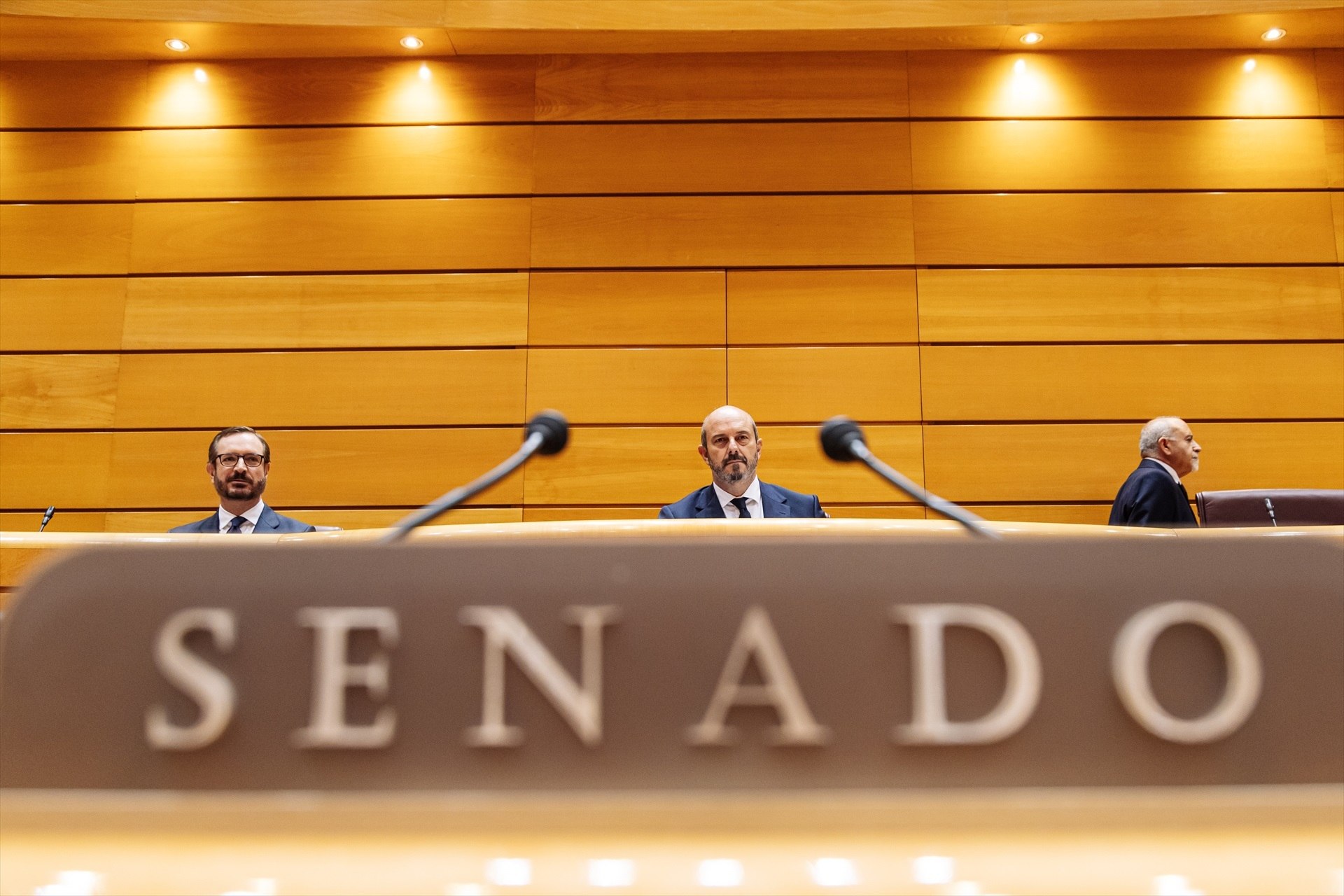Tuesday, May 14th. Two days after Sunday's Catalan election and just as the pre-campaign for the European elections gets into gear. That is the date on which the People's Party (PP) will deliver its "veto" to the amnesty bill in the Spanish Senate before returning it to the Congress of Deputies so that, then, finally, the lower house can definitively approve the legislation intended to end the judicial persecution of the independence movement. Thus, next week will see an end to a two-month period in which the main Spanish opposition party has used its absolute majority to filibuster the proposed law, keeping it in the chamber to avoid it coming into force for as long as possible.
A couple of weeks ago, the PP called an extraordinary plenary session in the Senate for May 14th. No such session was scheduled that week because May 15th is a public holiday in Madrid. But the Spanish conservatives did not confirm whether they would place the amnesty bill on the agenda of that session. They finally did so this Monday following the meeting of the reporting group of the upper house's joint Constitutional-Justice committee, which approved a report critical of the legislation, which in turn will have to be confirmed in a full meeting of the committee this Thursday, May 9th. The report approved this Monday was based on the text of two lawyers who denounce that the amnesty bill is unconstitutional and who consider that a law of this type "is in conflict with the legal architecture" of the European Union.
The committee meeting to be held next Thursday, May 9th, will pass an opinion that rejects the legislation. Then, this opinion will be voted on at the Senate plenary on May 14th. Yet, once the Senate has informed Congress that it has decided to reject the amnesty, and all these Senate procedures are out of the way, the lower house can go back and definitively vote to pass the bill, which will then be published in the official gazette and become law.
The amnesty, frozen in the Senate for two months
Last November, when Pedro Sánchez's intention to agree with Together for Catalonia (Junts) and the Catalan Republican Left (ERC) on an amnesty for independence process offences was already known, the PP used its absolute majority in the Senate to modify the chamber's rules. They approved giving the Senate's Bureau the power to decide whether a legislative initiative coming from Congress is processed with urgency or not. In other words, the conservatives managed to delay the processing of the amnesty bill in the upper house for two months instead of the twenty days it would have otherwise remained there.
Over this period, the PP has used the Senate as a theatrical stage. It even set in motion an institutional clash with the Congress of Deputies, which is of no use. It has called meetings of the autonomous communities committee so that the different territorial barons of the PP have a loudspeaker to criticize the bill. A month ago, Catalan president Pere Aragonès took advantage of this PP-led hearing to go to the upper house and defend the legislation, call a referendum on self-determination and demand a unique financing system for Catalonia.
During this time, the PP even scored an own goal. This happened because the Senate's Bureau, using its PP majority, requested a report from the Venice Commission on the amnesty. It backfired, as the Council of Europe consultational body was only mildly critical of the way of processing the legislation, while endorsing that amnesties are not attacks on the separation of powers.
After the Catalan election, in the EU pre-campaign
So, the amnesty will leave the Senate once the Catalan elections have been held. Although the PP studied the possibility of setting an earlier date, the party finally ruled out using the media noise generated by the Senate session for its own benefit in Catalonia. However, it will instead be able to exploit the issue in the run-up to the European elections. In fact, this very Monday the PP announced a demonstration in Madrid for May 26th against Pedro Sánchez, in defence of "democracy, judicial independence and freedom of the press".
Last week, after Pedro Sánchez returned from his five days of reflection to confirm that he had decided to continue as Spanish PM, Alberto Núñez Feijóo anticipated that if the Socialist leader's project is to "emulate regimes that do not believe in full freedom", he would have "the mobilization that he was looking for, but not in the terms he expected".

